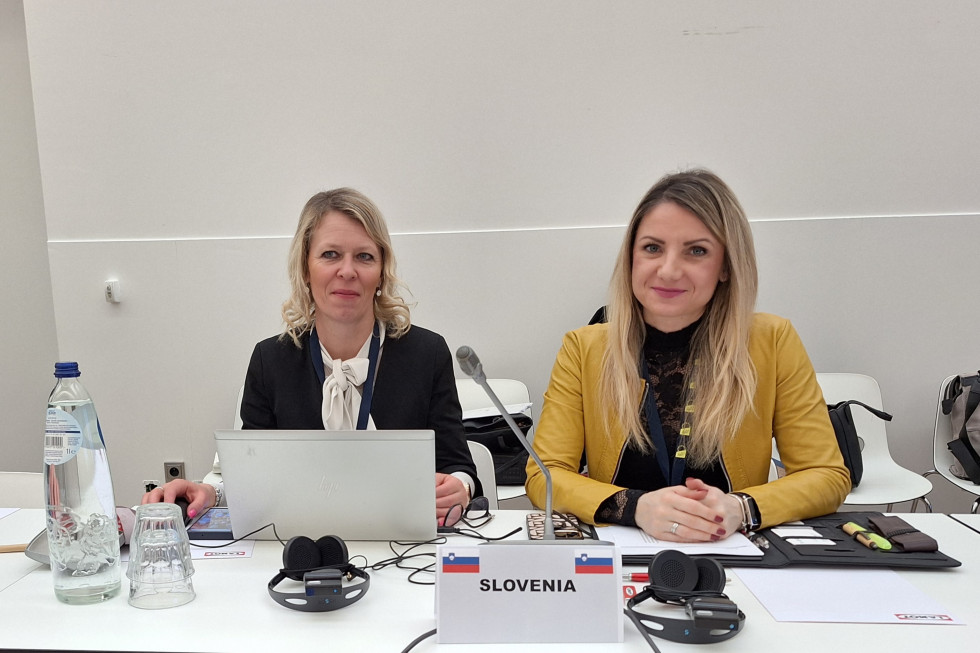State Secretary Tina Heferle: Slovenia is paying increasing attention to integration of foreigners
The conference was an opportunity for the ministers and heads of delegations from EU member states, the high-level guests from the European Commission, representatives of the United States, Canada, as well as the Organisation for Economic Cooperation and Development and the International Organization for Migration to share their insights into the future of the integration policy of newcomers.
As the State Secretary stressed, the Republic of Slovenia belongs to the group of the countries, who are paying increasing attention to integration of foreigners. She also thanked the presidency for holding a conference on a topic that Slovenia finds very important.
"Slovenia’s previous experience in the field of integration dates back to the early 1990's, when Slovenia received the refugees from the former Yugoslav republics after the fall apart of the former country. This was followed by several employment schemes for foreign workers from the region," State Secretary said adding that these newcomers originated from the region, with whom we share a common history, speak similar languages and have similar culture. In recent years, especially since the 2015 migration crisis and the eruption of the war in the Ukraine, Slovenia has been receiving newcomers with a different cultural and linguistic background, which required a readjustment of the measures in the field of integration.
Slovenia adopted the Strategy for integration of foreigners, who are non-EU citizens into the cultural, economic and social life in the Republic of Slovenia last November. Last year's amendments of the Foreigners Act also paved the way for further free of charge programmes of the initial integration of foreigners and introduced additional options for learning the Slovenian language – the informal course of Slovenian language at what is known as survival level.
The main objective of the policy for integration of foreigners is to create the conditions, which can allow the individuals, who are arriving into our environment to participate in a society that they can feel a part of in a dignified, independent and autonomous way. "A successful integration policy gives a foreign national the possibility and the opportunity to participate in social subsystems as an individual and thus contribute to the growth of the whole society, without forgetting that integration is a two-way process," Tina Heferle also noted. The programmes from the Integration strategy, which are strongly based on learning the Slovenian language and culture show to be promising and will be put into practice this year and potentially upgraded as needed in the future.

State Secretary Tina Heferle and Director of the Office of the Government of the Republic of Slovenia for the Support and Integration of Migrants mag. Katarina Štrukelj. | Author Ministrstvo za notranje zadeve

